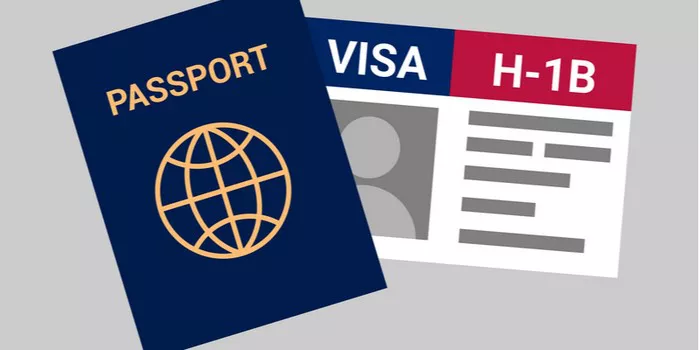In the realm of global migration, the H-1B visa program stands as a cornerstone for the United States, offering numerous benefits that extend beyond individual opportunities. Designed to attract highly skilled foreign workers, the H-1B visa program has become integral to the American economy, driving innovation, fostering economic growth, and enriching cultural diversity. Despite controversies surrounding its policies and usage, understanding the manifold advantages of the H-1B visa illuminates its crucial role in sustaining America’s competitive edge in the global arena.
1. Fueling Innovation and Technological Advancement
One of the primary benefits of the H-1B visa program is its role in fueling innovation and technological advancement within the United States. By attracting top-tier talent from around the world, particularly in fields such as science, technology, engineering, and mathematics (STEM), the H-1B visa program ensures that American companies remain at the forefront of innovation. These skilled professionals contribute their expertise to various industries, ranging from information technology to biotechnology, driving groundbreaking research, developing cutting-edge technologies, and pushing the boundaries of what is possible.
For instance, many of Silicon Valley’s most successful companies, including Google, Apple, and Facebook, have thrived due in part to the contributions of H-1B visa holders. These individuals bring diverse perspectives, specialized skills, and entrepreneurial spirit, fostering an environment conducive to creativity and invention. As a result, the United States maintains its position as a global innovation hub, attracting investment, generating intellectual property, and spurring economic growth.
2. Addressing Skills Shortages and Labor Market Needs
Another significant benefit of the H-1B visa program is its capacity to address skills shortages and fulfill labor market needs in critical sectors. In an increasingly competitive global economy, certain industries face challenges in finding qualified candidates to fill specialized roles. The H-1B visa program provides a solution by allowing employers to recruit talented professionals from abroad to meet specific skill requirements.
For example, industries such as healthcare, engineering, and finance often rely on H-1B visa holders to fill positions that require advanced technical expertise or specialized knowledge. Without access to this talent pool, companies may struggle to remain competitive, innovate, or expand their operations. By facilitating the recruitment of skilled foreign workers, the H-1B visa program enables businesses to overcome skills gaps, maintain productivity, and drive economic prosperity.
3. Stimulating Economic Growth and Job Creation
Beyond addressing immediate skills shortages, the H-1B visa program plays a pivotal role in stimulating economic growth and job creation across various sectors of the economy. Studies have consistently shown that skilled immigrants, including H-1B visa holders, contribute positively to job creation, entrepreneurship, and innovation, thereby bolstering overall economic activity.
According to a report by the National Foundation for American Policy, immigrant-founded billion-dollar companies, many of which rely on H-1B visa holders, have created thousands of jobs for American workers. Moreover, skilled immigrants often launch startups, file patents, and drive technological advancements, leading to the creation of new industries and the revitalization of existing ones.
Furthermore, H-1B visa holders contribute to consumer spending, tax revenues, and local economies, as they rent homes, purchase goods and services, and engage in community activities. By attracting and retaining skilled talent through the H-1B visa program, the United States sustains its economic dynamism, strengthens its global competitiveness, and generates opportunities for both native-born and immigrant workers alike.
4. Fostering Cultural Diversity and Global Exchange
In addition to its economic benefits, the H-1B visa program fosters cultural diversity and facilitates global exchange, enriching the fabric of American society. By welcoming talented individuals from diverse backgrounds, experiences, and perspectives, the United States cultivates a vibrant and inclusive community that celebrates innovation, creativity, and collaboration.
Through cross-cultural interactions in workplaces, educational institutions, and communities, H-1B visa holders contribute to a rich tapestry of ideas, traditions, and values. This cultural exchange not only enhances understanding and appreciation among individuals but also promotes tolerance, empathy, and mutual respect across borders.
Moreover, H-1B visa holders often serve as cultural ambassadors, sharing their customs, languages, and traditions with their American counterparts. This exchange of knowledge and experiences not only broadens horizons but also strengthens interpersonal connections and fosters lasting friendships. Ultimately, the diversity brought by H-1B visa holders enhances America’s social fabric, promotes global interconnectedness, and reinforces its identity as a nation of immigrants.
5. Supporting Higher Education and Research Institutions
Furthermore, the H-1B visa program plays a crucial role in supporting higher education and research institutions throughout the United States. Many universities and academic centers rely on foreign talent to fill faculty positions, conduct groundbreaking research, and contribute to knowledge creation in various fields.
H-1B visa holders bring valuable expertise, fresh perspectives, and collaborative opportunities to academic communities, enriching the learning experiences of students and scholars alike. They contribute to cutting-edge research projects, publish influential academic papers, and mentor the next generation of innovators and leaders.
Moreover, international students who come to the United States on F-1 visas often transition to H-1B visas upon completing their studies, further strengthening the talent pipeline for academia, industry, and the broader economy. By attracting and retaining skilled professionals through the H-1B visa program, universities and research institutions enhance their global reputation, advance scientific discovery, and maintain their position as leaders in education and innovation.
Conclusion
In conclusion, the H-1B visa program offers a myriad of benefits that extend far beyond individual employment opportunities. By attracting highly skilled professionals from around the world, the United States sustains its position as a global leader in innovation, drives economic growth, fosters cultural diversity, supports academic excellence, and promotes global exchange.
Despite challenges and criticisms, the H-1B visa program remains a vital component of America’s immigration system, contributing to its dynamism, resilience, and prosperity. As the United States continues to navigate the complexities of the global economy and labor market, maintaining a robust and flexible visa program is essential to harnessing the full potential of skilled immigrants and ensuring a bright future for generations to come.


